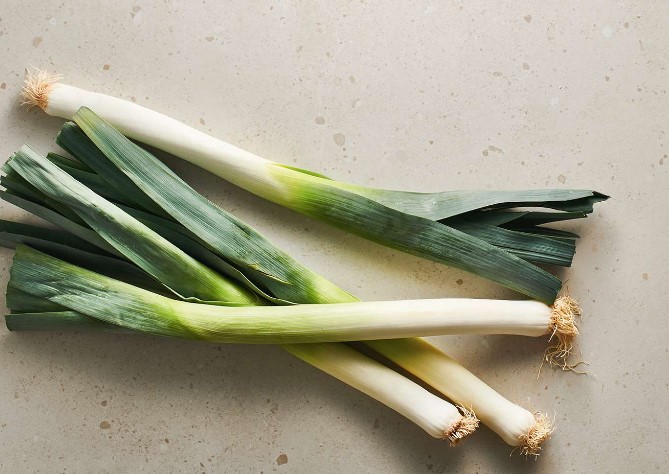Can cats eat leeks? What to Do if Your Cat Eats Leeks?
Can cats eat leeks? In this article, we’ll explore the dangers of leeks for cats, the symptoms of leek poisoning, and what to do if your cat consumes leeks. We’ll also discuss other related foods that are hazardous to cats and provide general tips for keeping your feline friend safe. Follow Cat Memorial Stones !!
Why Are Leeks Dangerous for Cats?
Leeks belong to the Allium family, which also includes onions, garlic, chives, and shallots. All these plants contain thiosulfate, a compound that is particularly harmful to cats. Thiosulfate can cause damage to your cat’s red blood cells, leading to a serious condition called hemolytic anemia. This means that the red blood cells, which are responsible for carrying oxygen throughout the body, are destroyed faster than they can be replaced.
Even a small amount of leek ingestion can lead to severe health problems in cats, especially if consumed regularly over time.

How Do Thiosulfates Affect Cats?
Unlike humans, cats lack the specific enzymes required to properly break down thiosulfates. When cats ingest leeks or other Allium plants, these toxic compounds can build up in their system, leading to severe health issues. Even small amounts of leek ingestion can pose a risk.
While the exact amount of leek required to cause poisoning varies depending on the size and sensitivity of the cat, it’s important to note that any ingestion of leeks should be treated as a potential emergency.
Symptoms of Leek Poisoning in Cats
If your cat has ingested leeks, the symptoms may not appear immediately. It could take a day or two before signs of toxicity are visible. The symptoms of leek poisoning in cats include:
- Lethargy: Cats may become unusually tired or weak due to the lack of oxygen in their blood.
- Vomiting: An upset stomach is one of the first signs of food poisoning in cats.
- Diarrhea: Leeks can irritate the gastrointestinal tract, leading to diarrhea.
- Loss of Appetite: Cats suffering from leek poisoning may stop eating altogether.
- Rapid Breathing: As the body struggles to deliver enough oxygen, the cat may start breathing faster than usual.
- Pale or Yellowish Gums: A tell-tale sign of anemia, your cat’s gums may change color.
- Dark-Colored Urine: Blood cells destroyed by the thiosulfate can lead to a darker color in urine.
If you observe any of these symptoms after your cat has come into contact with leeks, immediate veterinary attention is necessary.
>>> Read More: Can Cats Eat Lentils?
What to Do if Your Cat Eats Leeks
If you suspect or know that your cat has eaten leeks, don’t wait for symptoms to develop. Contact your vet immediately. They may recommend inducing vomiting if the ingestion was recent or provide other treatments to prevent the thiosulfate from damaging the red blood cells.
In severe cases, your cat may need to be hospitalized for intravenous fluids and other supportive care to manage symptoms and reverse the effects of leek poisoning.

Preventing Accidental Leek Consumption
The best way to protect your cat from leek toxicity is to keep leeks and any related foods (onions, garlic, etc.) out of reach. Be especially careful with:
- Human foods: Many sauces, soups, and dishes contain leeks, garlic, or onions. Never share these foods with your cat.
- Leftovers: Ensure that any leftovers are properly disposed of or stored away, as cats can be curious and may eat foods they shouldn’t.
- Garden plants: If you grow leeks or other Allium plants in your garden, make sure your cat doesn’t have access to these areas.
Safe Alternatives for Your Cat’s Diet
While leeks and other Allium family vegetables are harmful, there are many cat-safe alternatives you can offer your feline friend. Some safe vegetables that cats can occasionally enjoy include:
- Carrots
- Pumpkin
- Peas
- Zucchini
These vegetables provide fiber and can be a healthy supplement to your cat’s diet when offered in moderation.
Related Foods That Are Also Toxic to Cats
Leeks are not the only member of the Allium family that poses a risk to cats. Other Allium vegetables that are toxic to cats include:
- Onions
- Garlic
- Chives
- Shallots
Even small amounts of these vegetables, whether raw, cooked, or powdered, can be dangerous for cats. Many processed foods, such as soups, sauces, and baby food, may contain onion or garlic powder, so it’s essential to read food labels carefully before offering anything to your cat.
Conclusion: Leeks Are Toxic to Cats
In summary, leeks are toxic to cats and should be avoided at all costs. Even small amounts can cause serious health issues, such as hemolytic anemia. If your cat shows signs of leek poisoning, contact your vet immediately. By keeping leeks and related foods away from your cat, you can help ensure that your feline friend stays healthy and safe.
When it comes to your cat’s diet, it’s always best to stick to foods that are specifically formulated for them. If you’re ever unsure about what is safe for your pet, consulting your vet is the best course of action.
>>> Click Can cats eat lemongrass?
